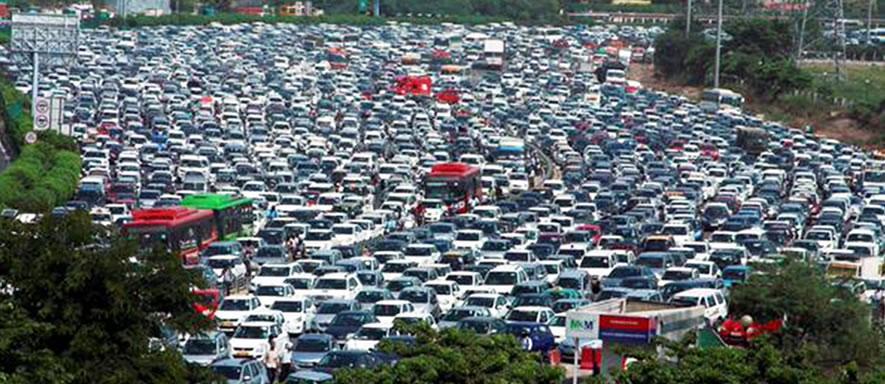India’s government is currently examining ways in which it can reduce the growing problem of urban congestion in major cities across the country. The government has formed a federal think-tank, which is chaired by the Indian Prime Minister Narendra Modi. Prime Minsiter Modi has previously called for reduced car ownership and believes the use of private vehicles as shared taxis could be the ideal solution to India’s traffic woes.
It has been publicly disclosed that global ride-sharing colossus Uber has partnered with the government on the federal think-tank discussions, in which it will offer its opinions on the economic and environmental impact of using private cars as taxis.
It’s evident that increasing the availability of cars that can be used as taxis would be a welcome boost to Uber and its rival Ola, which is backed by Japan conglomerate SoftBank. However, some analysts have expressed fears that a government deal with Uber and Ola would only heighten tensions with taxi operators who are traditionally forced to pay higher fees for commercial licenses and are subject to more rigorous vehicle testing.
A spokesman for the Indian government reiterated the Modi administration’s desire to reduce private car ownership, and said that a three-month study will begin examining the safety, regulatory, tax and insurance implications of adopting wide-spread ride-sharing services in major cities.
While the study is still in its infancy, the main objective of the study group participants is to establish a clear and reasonable regulatory framework for ride-sharing so it enables companies to operate in India with ambiguity. Uber has been granted use of private cars for ride-sharing in countries such as Australia and Singapore, but it has faced stiff opposition from taxi operators in parts of Europe and North America.
A spokesman for Uber said that sharing private vehicles would significantly reduce urban congestion in major cities, and claimed that it would also ensure a much more efficient use of cars. He said, “We are engaging with a range of stakeholders in India about the best way to realize this vision.”
However, a move towards ride-sharing services and shared private vehicles would undoubtedly dent car sales in India, where the ownership rate is already low compared with other countries. Analysts in the automotive industry in India have claimed that there are fewer than 20 cars for every 1,000 people in India. Suzuki, Hyundai and Tata Motors are three leading car companies in India, which is forecasted to be the world’s third-largest car market by 2020.
Uber and Ola have built their taxi fleets by offering incentives such as free smartphones and cash bonuses to drivers, but have recently cut back on the incentive strategy in an effort to improve profitability. Analysts have also claimed that the use of private cars as taxis would improve the supply of vehicles at a lower cost. Neil Shah, a research director at consulting firm Counterpoint Research said the concerns around safety would need to be addressed, but conceded that the proposal by the Indian government will be welcomed by Uber and Ola. He said: “If most of these cars are affiliated with Ola and Uber then it's a win for them.”
The proposal, however, could antagonize current drivers, who have paid hefty fees to get a commercial taxi license. Concerns around the safety of passengers would also need to be addressed - any new law must ensure private car drivers go through the same background and safety checks.





